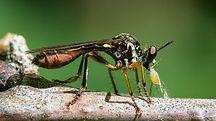
OUR PRACTICES

Rotational Grazing
We employ a rotational grazing practice for all of our livestock. The grazing program we use for our cattle is most noticeable. Our large pastures are divided into smaller paddocks and the cattle are moved one to two times per day. This concentrates the cattle to one small area and allows other areas to recover.

Pastured Livestock
All of our livestock spend their lives on pasture with free access to shelter and water. Animals raised on pasture experience lower stress and disease, and improve soil health.

Resource Protection
Back Creek runs from north to south through our farm on it's way to the Conodoguinet Creek. We take many steps to help protect the quality of the stream including riparian buffers and stabilized stream crossings.

Stabilized Areas
Water lines run underground throughout our pastures to stabilized trough areas. Watering areas are naturally concentrated by the livestock and stabilization (with concrete) helps to avoid vegetative deterioration and sediment-laden runoff.

Solar Facility Grazing
Our sheep spend much of their spring and summer controlling vegetative growth in area solar fields. This practice is beneficial to the property owner, the farmer, and the environment. The solar field provides a flat, fenced in area with cover (solar panels) and we provide the water.

Fly Control
To control flies, especially on our cattle, we use homemade fly spray comprised of apple cider vinegar and essential oils.
We also release fly predators, specifically parasitic wasps, throughout the spring and summer. These wasps are harmless to humans and animals and feed on the fly larvae and pupae thus breaking the fly reproduction cycle.

Foraging Practices
Some of our animals, notably the hogs and goats, are given access to brushy areas. The animals are rotated throughout and help to control overgrowth without the use of mechanical means.

USDA & Inspections
All of our products are processed and packaged in USDA-inspected facilities. Our farm's cold-storage and market equipment is also inspected regularly by the PA Department of Agriculture.
